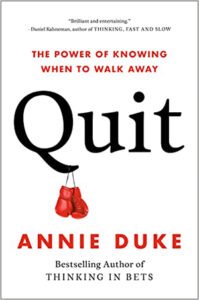|
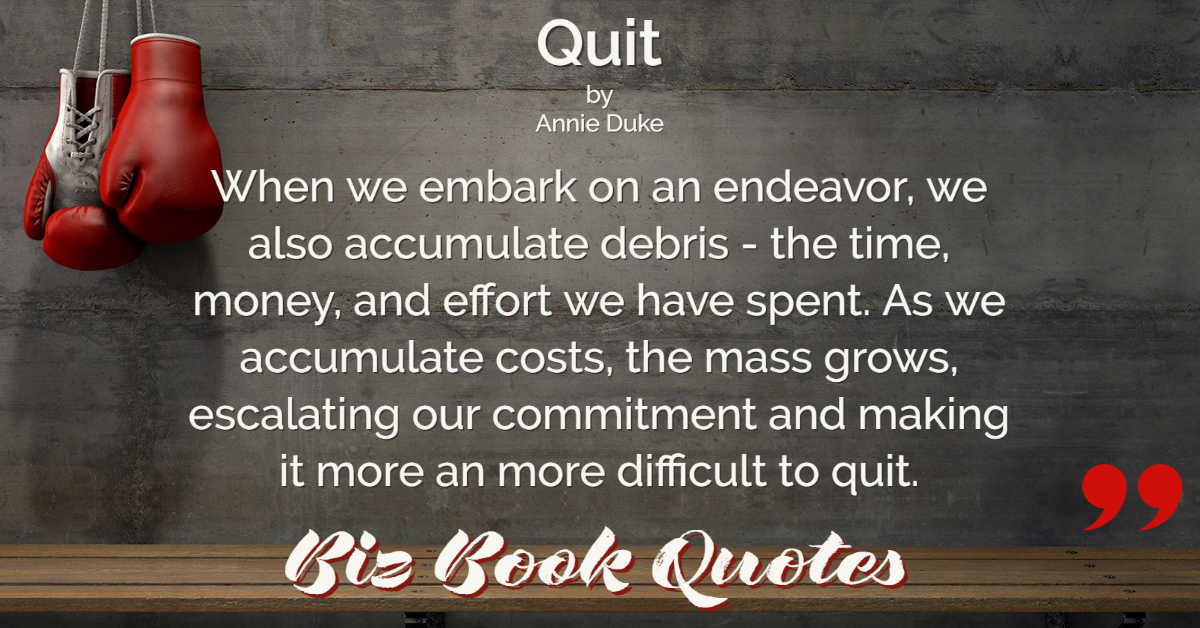
|
Quit:
When we embark on an endeavor, we also accumulate debris – the time, money, and effort we have spent. As we accumulate costs, the mass grows, escalating our commitment and making it more an more difficult to quit.
|
96 |
|
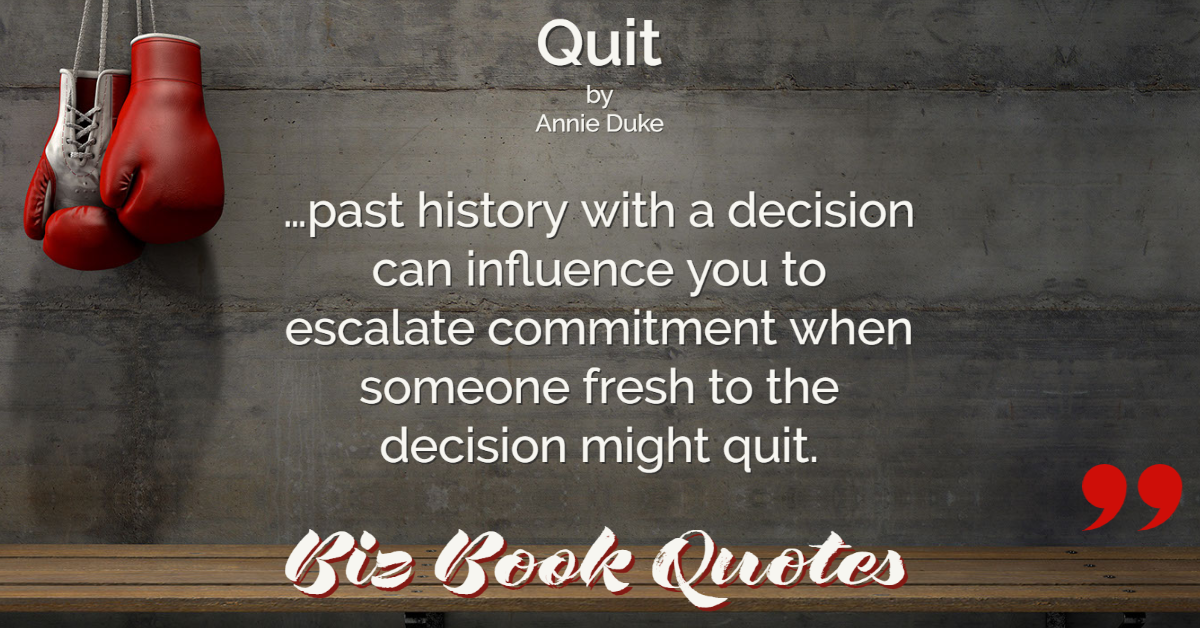
|
Quit:
…past history with a decision can influence you to escalate commitment when someone fresh to the decision might quit.
|
100 |
|
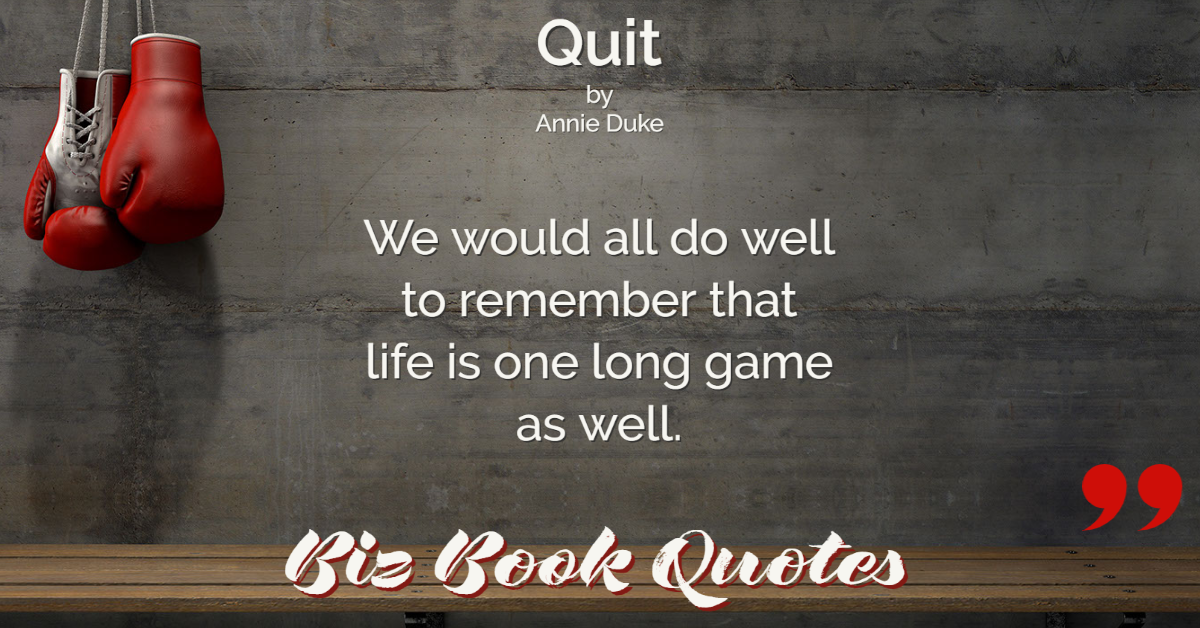
|
Quit:
We would all do well to remember that life is one long game as well.
|
102 |
|
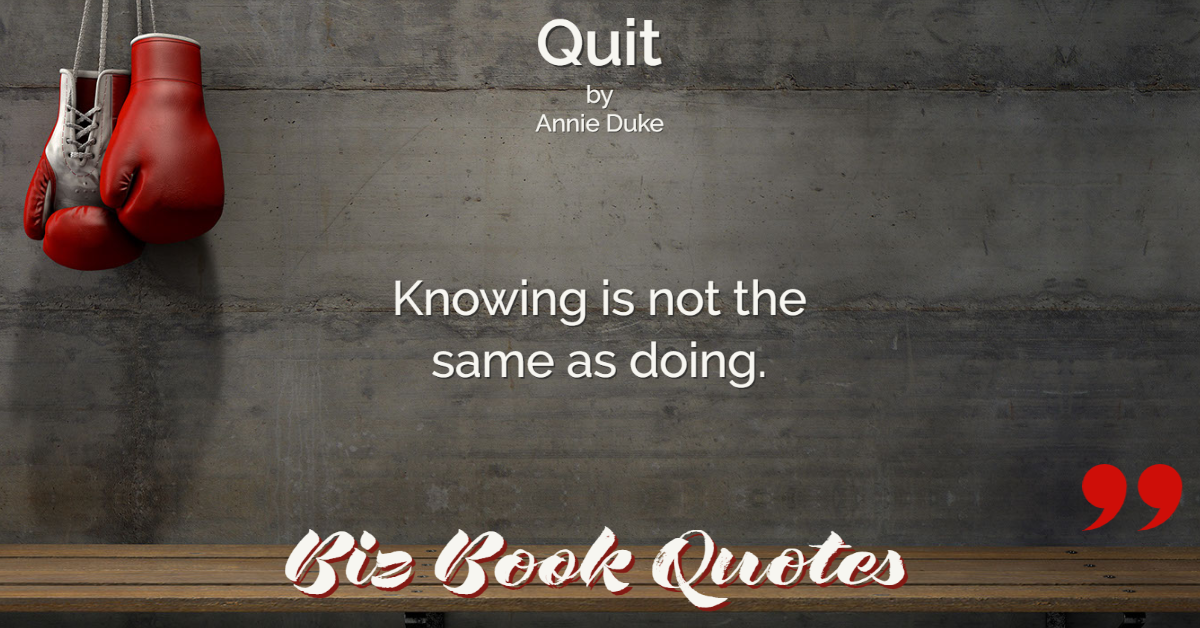
|
Quit:
Knowing is not the same as doing.
|
104 |
|

|
Quit:
If you are able to cut your losses earlier, it’s a huge win. An added bonus is that it frees you up so you can turn your limited attention and resources to more fruitful endeavors that have a higher expected value, reducing opportunity costs.
|
113 |
|
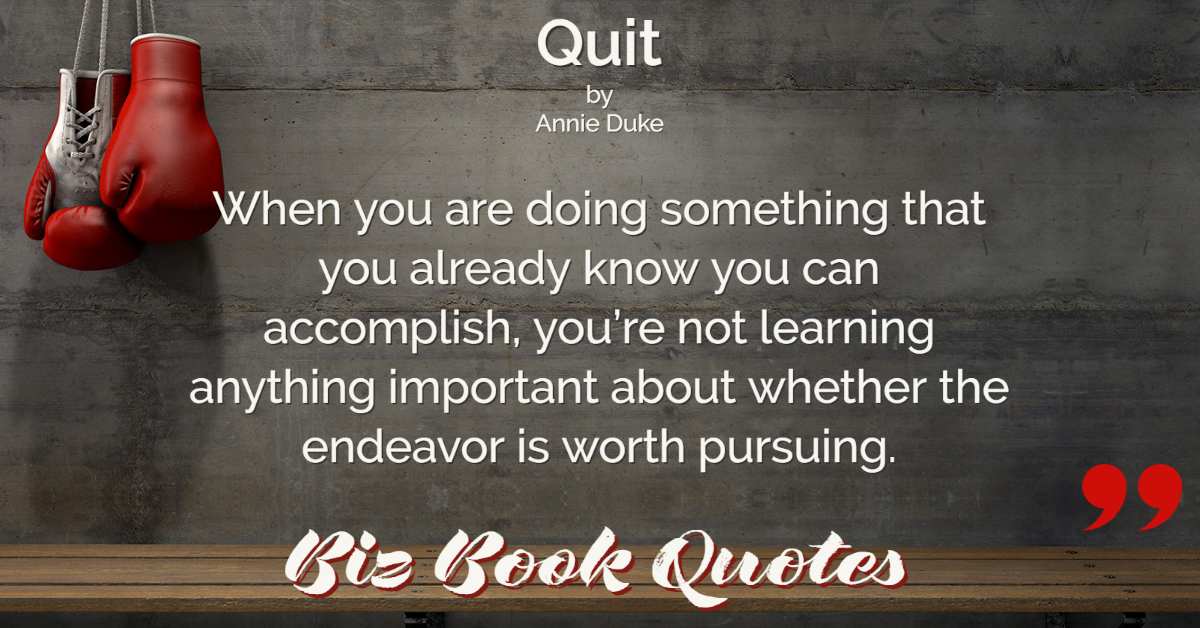
|
Quit:
When you are doing something that you already know you can accomplish, you’re not learning anything important about whether the endeavor is worth pursuing.
|
114 |
|
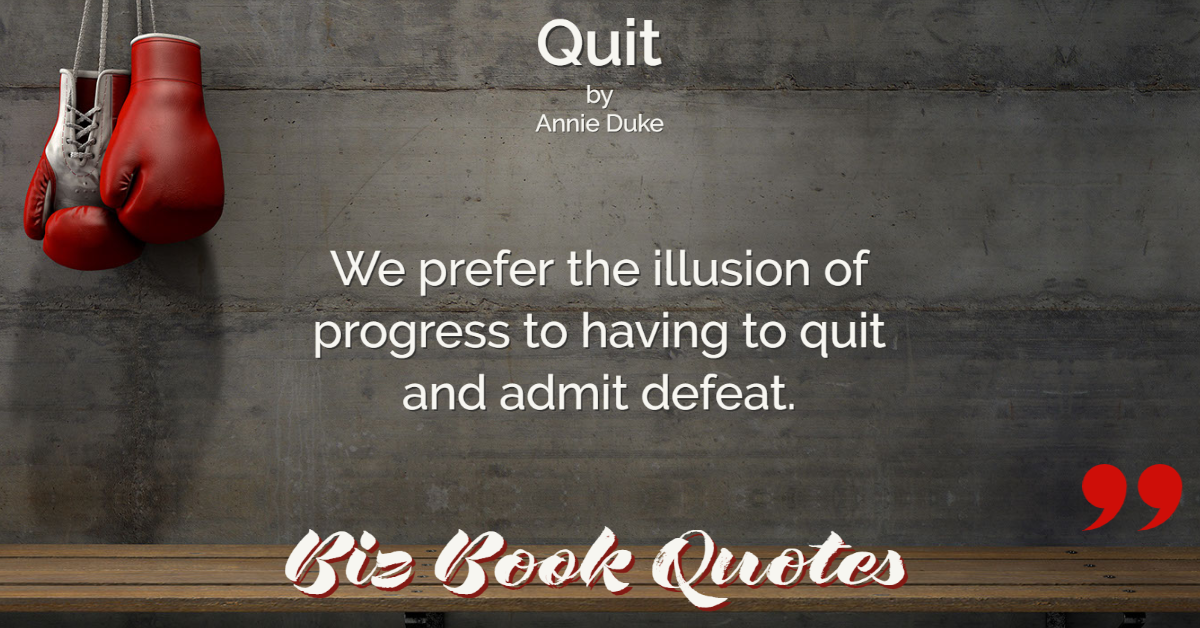
|
Quit:
We prefer the illusion of progress to having to quit and admit defeat.
|
114 |
|
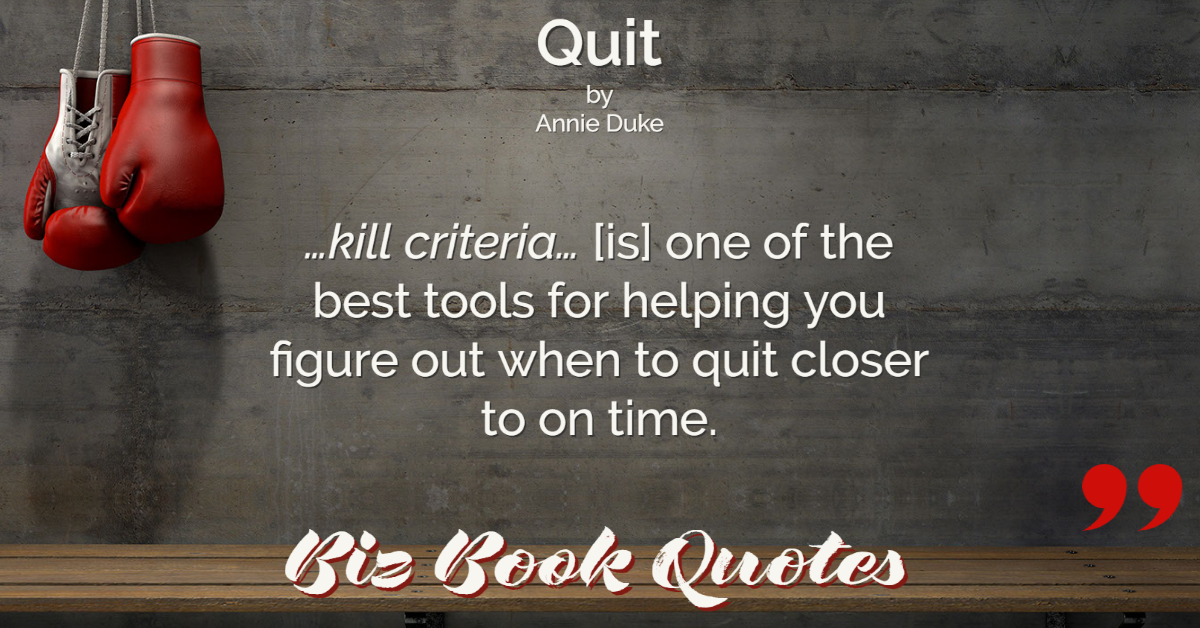
|
Quit:
…kill criteria… [is] one of the best tools for helping you figure out when to quit closer to on time.
|
116 |
|

|
Quit:
Whether is comes to following through with diet plans or work plans or study plans… precommitment contracts get people to act more rationally.
|
117 |
|
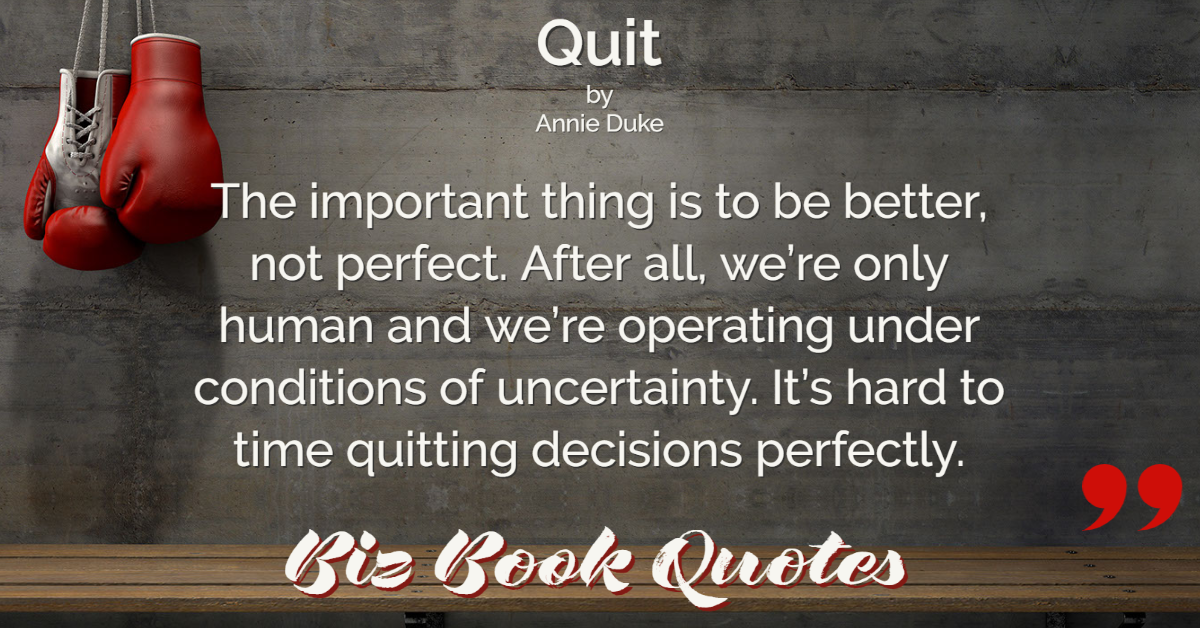
|
Quit:
The important thing is to be better, not perfect. After all, we’re only human and we’re operating under conditions of uncertainty. It’s hard to time quitting decisions perfectly.
|
126 |
